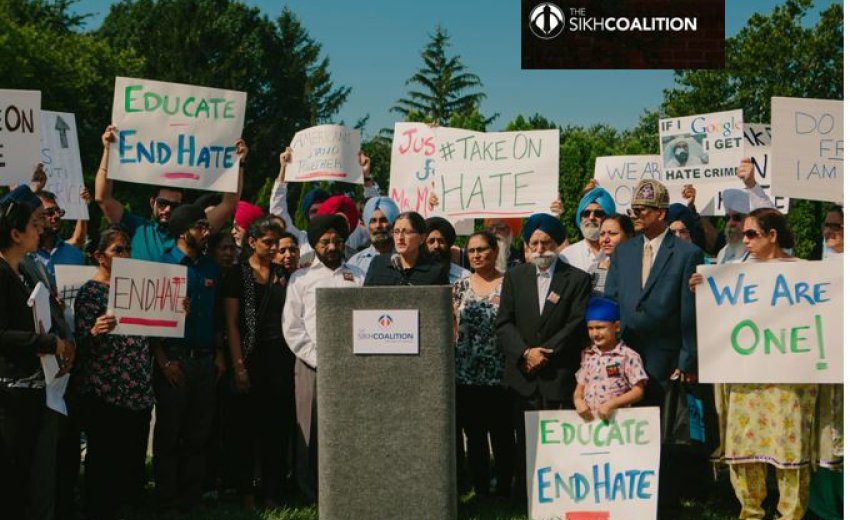(New York, New York) November 12, 2008 - The Sikh Coalition earlier this month submitted an amicus brief to the United States Supreme Court. This marks the first time a Sikh organization has ever submitted an amicus, or friend of the court, brief to the high court.
The Matter at Hand
The case, Ashcroft v. Iqbal, involves the question of whether a federal department or agency head can be directly sued for policy action which deprives a person of their constitutional rights. Thus far, both a federal district court in New York and a federal appeals court have allowed the suit to move forward. The matter now rests before the United States Supreme Court following an appeal by the federal government.
The lawsuit was brought by Javaid Iqbal, a Pakistani Muslim who says he was mistreated in a federal prison and classified as a "person of interest" solely because of his race and religion, and without any evidence that he was tied to terrorism. He was eventually deported on unrelated identity theft violations, but was never found to have engaged in terrorism-related activity.
Mr. Iqbal sued FBI Director Robert S. Mueller III, former Attorney General John Ashcroft and other federal officials, saying their decisions led to his unjustified mistreatment, including beatings, subjection to extreme temperatures, and daily body-cavity searches. Mr. Iqbal asserts his abuse was a direct consequence of policies created by federal officials that encouraged or at least condoned unconstitutional racial and religious discrimination.
A report by the U.S. Justice Department's Office of the Inspector General found that over a thousand Muslims were the subject of "preventative detention" after 9/11 during which they were held by federal officials until cleared of any wrong-doing. This "preventative detention" effectively turned the presumption of innocence on its head. None of the over 1,000 Muslims held in preventive detention were ever found to have engaged in terrorist activities.
Traditionally, government officials are granted "qualified immunity" from prosecution for policy actions. This immunity, however, does not apply if officials knowingly engage in the violation of constitutional rights.
The Coalition's Interest in the Matter and Amicus Brief
The Coalition is interested in ensuring that government respects the basic rights of all people. In particular, the Coalition believes that where constitutional violations occur and government officials are aware, those officials should be held directly responsible.
The Coalition's brief to the Court make three principal arguments. First, the brief notes the country's historical view, stemming from the Framers of this nation, that religious liberty must be respected and that the courts are to ensure that the government does not interfere with that religious liberty. The brief then asks that Mr. Iqbal's case go forward so that a court may review whether he was unlawfully punished solely because of his religion as opposed to his actions.
Next, the brief, drawing upon the government's shameful internment of citizens and nationals of Japanese origin during World War II, argues that "national security" is not a sufficient basis for targeting a group for preventative detention based on religion.
Finally, the brief argues that the special circumstances of the post-9/11 backlash, where both private citizens and government were engaged in wholesale discrimination, makes clear that government officials must have known about the unlawful discrimination suffered by persons like Mr. Iqbal.
A Note of Thanks
The Coalition thanks Dawinder Singh Sidhu, co-convenor of the Discrimination and National Security Initiative at Harvard University, for drafting the brief and requesting the Coalition's support for submitting it. The Coalition also thanks the Brian E. Robinson and Counsel Press for filing the brief.
The Coalition also thanks the following organizations for signing on to the brief: American-Arab Anti-Discrimination Committee, Discrimination and National Security Initiative, Muslim Public Affairs Council, Sikh American Legal Defense and Education Fund, Sikh Council on Religion and Education, South Asian Americans Leading Together and United Sikhs.
